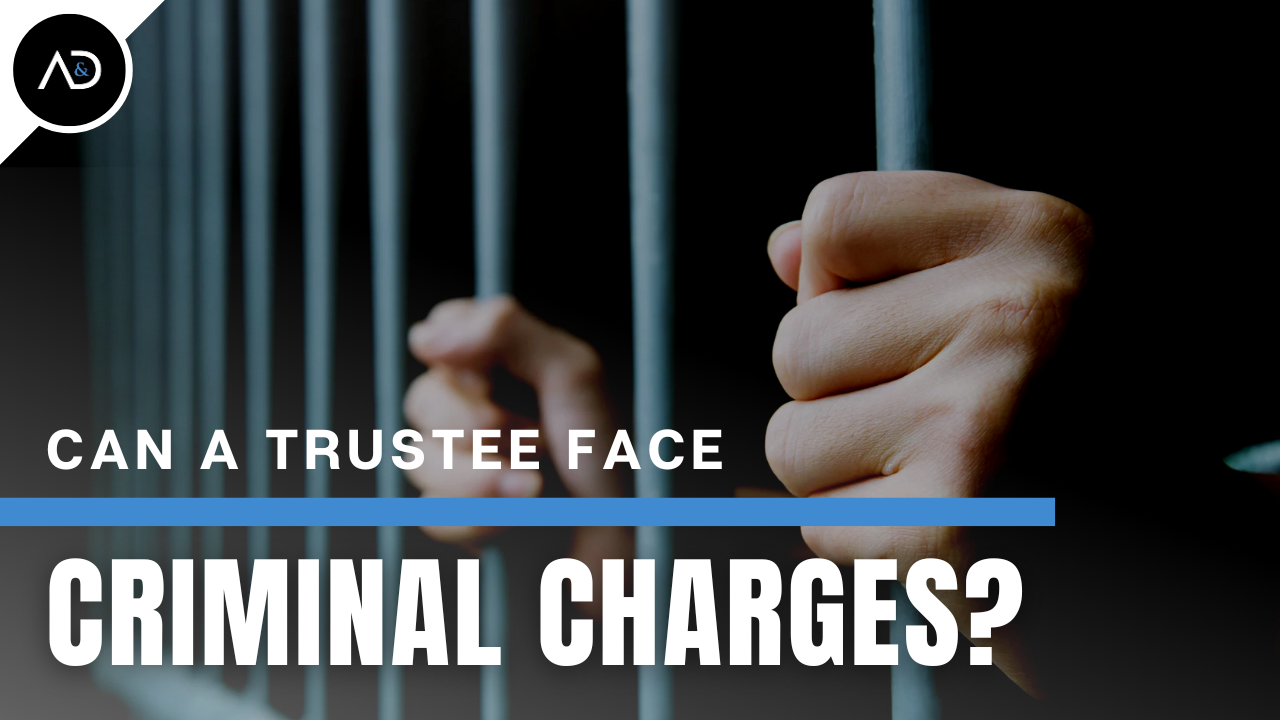
Can a Trustee Face Criminal Charges in California?
Trustees in California have significant responsibilities. They are legally obligated to follow the terms of the trust and act in the best interests of the beneficiaries. When they fail to meet those duties, beneficiaries can bring a lawsuit for breach of fiduciary duty. But what about criminal charges—can a trustee actually go to jail for mismanaging a trust?
Civil Breach vs. Criminal Conduct
In most cases, a trustee’s missteps are civil matters, not criminal ones. That means beneficiaries can sue the trustee in probate court, but they cannot press criminal charges. Only a district attorney or law enforcement agency can bring criminal charges against a trustee.
Even when a trustee’s actions feel unfair—or even deceitful—they usually don’t meet the legal standard for criminal prosecution. A breach of fiduciary duty, while serious, is not the same as committing a crime.
When Trustee Actions Might Be Criminal
Criminal charges are possible in extreme situations. For example, if a trustee outright steals from the trust—say, transferring assets into their personal accounts without authorization and with no legal justification—they could be charged with theft or embezzlement.
However, this kind of blatant misconduct is rare. More commonly, disputes arise over interpretation, valuation, or trust administration, which are civil—not criminal—issues.
A Common Dispute: Valuation Disagreements
Consider this example: A trustee is also one of three beneficiaries of a trust. The trust owns a house that must be divided equally among the beneficiaries. The trustee wants to keep the house and assigns it a value of $250,000 in order to distribute the remaining trust assets fairly.
The other two beneficiaries believe the house is worth $450,000 and hire an appraiser to back up their claim. After a lengthy court battle, the probate court agrees and sets the value at $450,000.

Did the trustee commit a crime by undervaluing the house? No. Even if the court finds that the trustee breached their fiduciary duty, that doesn’t make their actions criminal. The trustee may have had a good-faith belief the house was worth less due to needed repairs or market conditions. A mistaken belief—even if it turns out to be wrong—is not a crime.
What Beneficiaries Should Focus On
Focusing on the criminal aspect of a trustee’s actions is rarely productive. Most breaches are handled in probate court, not criminal court, and beneficiaries cannot initiate criminal proceedings themselves.
Instead, beneficiaries should concentrate on what they can control: seeking court oversight and remedies through a civil lawsuit. If a trustee has acted improperly, a court can remove the trustee, order the return of misused assets, or impose financial penalties.
Bottom Line
While trustees can technically face criminal charges, it’s uncommon and limited to cases involving outright theft or fraud. Most trustee misconduct is dealt with through civil litigation. If you’re a beneficiary concerned about a trustee’s behavior, your best course of action is to consult a probate attorney and consider filing a petition in probate court—not calling the police.
If you’re unsure whether you need legal help, consider scheduling a free consultation with an experienced probate lawyer. A good lawyer can quickly assess your situation and guide you on the best course of action.

